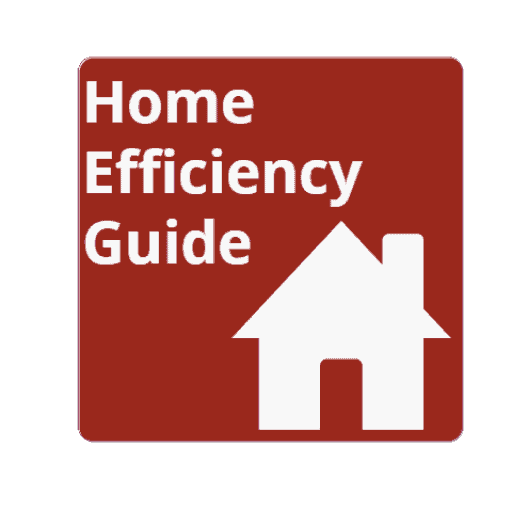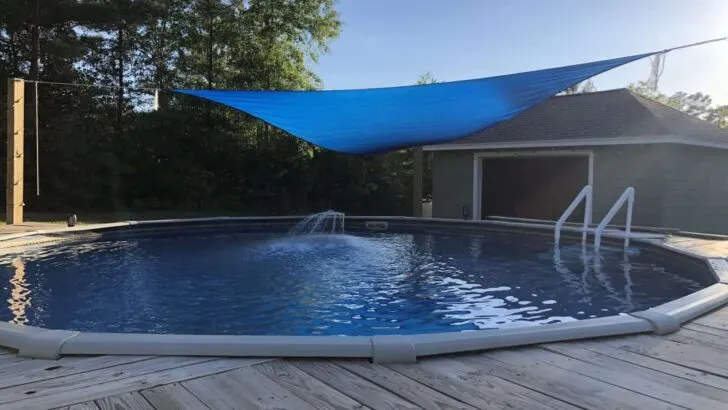We’re familiar with tankless water heaters providing on-demand hot water for domestic appliances. But can that same type of tankless water heater be used to heat a pool?
A tankless water heater can be used to heat a pool, although the type used for domestic hot water isn’t designed for this purpose. You may need to run it on a separate circuit from the main pool circulation system. There’s also a risk of damage from pool water chemicals.
So, using a tankless water heater to heat your pool may not be straightforward. But, if you’re thinking of diving in and trying it, you don’t need to reinvent the wheel. Read below how other resourceful people have made it work and discover the potential pitfalls before you take the plunge. And be sure to read our recommended alternative later in this article.
How Does Conventional Pool Heating Work?
Conventional pool heaters, whether a heat pump, electric heater or a gas heater, form part of the pool’s circulation system. They use a pump to draw cooled water from the pool, pass it through a filter, followed by a heater. The cleaned and heated water is then returned to the pool.
As mentioned above, pool heaters that form part of this system come in various forms. They’re all tankless, in that they don’t store water. But below, we’ll talk about whether the type of tankless heater used for heating domestic hot water can heat a pool.
How Can a Tankless Water Heater Heat a Pool?
Note that the use of a domestic hot water tankless heater for pool heating isn’t recommended. But, here’s the theory.
If you use such a tankless water heater to heat a pool, it’ll work similarly to how it works to provide your domestic hot water.
For domestic hot water, the burners or heating elements in a tankless water heater ignite when the flow sensors detect water flow (source). For example, opening a hot water faucet draws in groundwater from your water supplier.
If you use a tankless water heater to heat your pool, the water source will be your pool, not your groundwater. So, you’ll need to pump water from the pool into the inlet on your tankless unit.
When the pumped water reaches your tankless heater, the flow sensor will ignite the burner or switch on the heating elements.
The rest of the process would be the same as if heating water for your domestic appliances.
So, the burners or heating elements heat a heat exchanger. The heat from the exchanger transfers to the water as the water passes over it. Once the water reaches your desired temperature, it’ll exit the heater and run into your pool.
Well, that’s the theory, and it sounds simple enough, so what’s the problem?
So, It Can Work — What’s the Catch?
Standard tankless water heaters for domestic hot water aren’t designed to heat pools. This gives rise to several potential issues.
For one thing, many models are not designed to be installed outside so choosing an outdoor model would be the first thing we need to consider.
But there are a few other important points to keep in mind…
Flow Rates of Tankless Water Heaters Are Relatively Low
These tankless water heaters operate at relatively low flow rates (source). Most have flow rates of around 5-7GPM. Some high-end gas-powered models can get into double figures, but they’re costly.
The usual flow rate range is significantly below the flow rate of most pool pumps.
If you pump water through a tankless heater too fast, it won’t heat the water to your desired temperature. Also, it’s likely to cut out to prevent damage. Either way, you won’t get heated water for your pool.
The pump’s flow rate depends on several factors, including pool size. If you have a small pool, you may be OK to use a tankless heater with your pool pump.
Otherwise, one way of getting around this is to run the tankless heater on a separate circulation system from your main one. That means using a pump with a lower flow rate to pull water from your pool and send it through the tankless heater.
Your standard pool pump and filter to keep your water clean would be separate from this.
So, you’d have two circulation systems, one for heating and one for cleaning.
The following video shows how one person in Ohio accomplished this for an 8,000 gallon (36,370ltr) pool. He used a cheap natural gas tankless water heater and a pump he bought on eBay:
If you don’t have natural gas or are not willing to connect up a pool heater to it, you can use a tankless heater running on propane.
This person in Colorado rigged up a Camplux 2.64GPM Outdoor Tankless Water Heater (link to Amazon) and a pump like this SEAFLO 3.3GPM Water Pump (link to Amazon) in the following video:
So flow rate issues can be overcome. But, there’s a but.
Pool Heaters Are Usually Placed After the Pool Filter
As we’ve discussed above, the filter on your pool’s circulation system usually comes before the heater. And that’s for a good reason.
You don’t want to clog up your pool heater with debris from the pool. The filter stops that from happening.
A tankless water heater is no different. If you pump pool water, especially from an outdoor pool, directly through a tankless water heater, you risk clogging up the inlet and outlets.
Either way, the heater won’t work correctly due to a lack of flow or inability of the heated water to flow out as it should.
In both the videos above, there was no pool filter between the pump and the tankless water heater. Each set-up appeared to rely on the strainer on the pump to keep the water feed to the tankless heater debris-free.
This seems to have worked OK for those guys. But the potential issue is something you should be aware of if you’re thinking of trying the same thing.
Pool Chemicals May Damage a Tankless Water Heater
The design of conventional pool heaters makes them well-suited to heating pools. They’re made from materials that withstand chemically treated pool water.
A tankless water heater for heating domestic hot water isn’t designed for chemically treated pool water.
So, pool chemicals may damage your tankless water heater by running pool water through it. In fact, some manufacturers such as Rinnai specifically state that their product cannot be used for heating pools and spas for this reason (source).
Now, it’s possible you’ll get away with it because the chlorine content of the water entering your tankless heater may have dissipated (source). But, there’s no guarantee, and over time damage may occur.
An Alternative to Using a Standard Tankless Water Heater
If you want a more straightforward solution than rigging up a tankless water heater to do a job it wasn’t designed for, there is an alternative.
You are better off buying a tankless heater that’s specifically designed for pool heating. An example is this EcoSmart SMART POOL 27 Electric Tankless Pool Heater (link to Amazon).
The advantage of using a tankless heater is that it can be installed on your existing pool circulation system. That is right after your pool filter, so it’ll be debris-free water entering it.
This model works with pools up to 15,000 gallons. And as stated in it’s literature, as with conventional pool heaters, it’s parts can cope with pool chemicals assuming proper dilution (source).
It’s also a tidier solution than the workarounds you’ve seen above.
Conclusion
Although tankless water heaters for domestic hot water aren’t designed to heat pools, it’s possible to use them for that purpose. But, it may involve playing around with your pool circulation set-up, and you risk damage to the heater due to the chemicals in pool water and debris in the water.
The best solution is to purchase a tankless water heater designed specifically for swimming pools like the example we gave above.
As a homeowner, I am constantly experimenting with making the structure of my house more energy-efficient, eliminating pests, and taking on DIY home improvement projects. Over the past two decades, my family has rehabbed houses and contracted new home builds and I’ve learned a lot along the way. I share my hard-learned lessons so that you can save time and money by not repeating my mistakes.


Leave a comment
You must be logged in to post a comment.